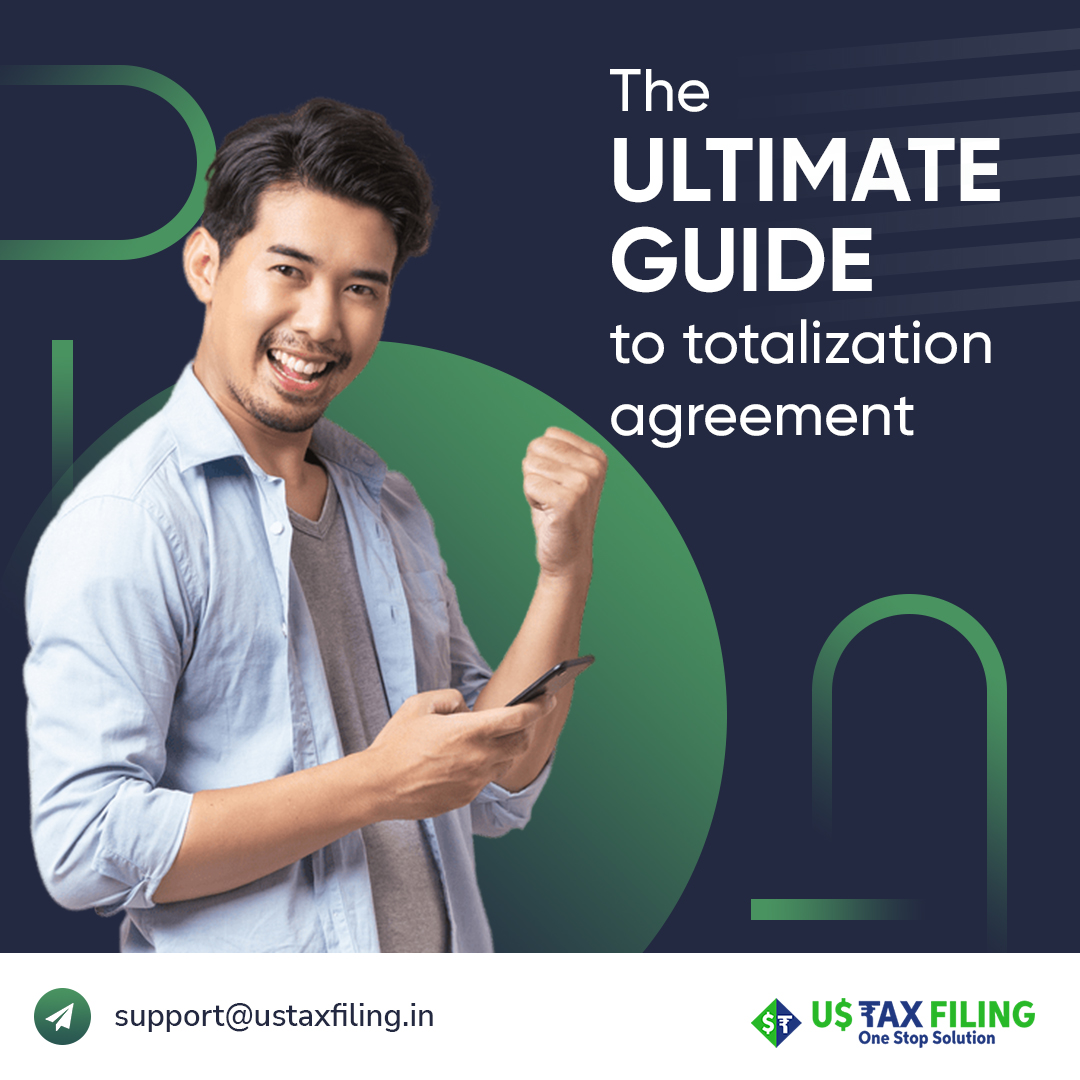Are you aware of the totalization agreement? How do they affect your expat taxes? If you don’t know anything, don’t worry; at USTAXFiling, we will assist you with everything related to totalization agreements. For that, stay tuned and continue to read till last at USTAXFiling.in!
As an American staying and working overseas, it is necessary to know whether the US has a totalization agreement with the host country. But for that, you must know why it is necessary. In this blog, we will discuss everything about totalization agreements and how they impact your expat taxes.
Major Facts
- Income tax treaties are well-designed to prevent double taxation. Also, they deal with income taxes rather than social security.
- A totalization agreement means a multinational treaty that allows individuals who work in several countries to get social security benefits from one or both of the home countries.
- Social security systems are confused with income tax treaties. While the two do have the same purpose, they also have a few differences.
What Is a Totalization Agreement?
Totalization agreements, also called social security agreements, are international treaties that set up laws for which countries must get an expat’s social security contributions. It aids in preventing US expats from having to pay into several social security systems out of the same income stream that is in the form of double taxation.
For instance, let us say an expat named Mathew moves to Australia to take a job. He should contribute to the Social Security system in the US as a citizen of the US. As an employee of an Australian company, he has to contribute to the Australian social security system, too. It means that Mathew may have to pay a social security tax twice from his income from employment.
Luckily, based on the information about his employment, the Australia-US totalization agreement may clarify which system he must contribute to rather than requiring that he contribute to both of them.
The risk of double taxation is there for Americans staying and working overseas in countries without totalization agreements. Also, the Australia-US agreement is restricted to only specific types of employment income. It does not cover all social security taxes. So, Americans who are working overseas may have to contribute to two different systems based on their employment type.
Totalization Agreements vs. Tax Treaties
The social security system is confused with tax treaties. While the two do have the same purpose, they have differences. So, what is a tax treaty, and what makes it different from a social security system? Tax treaties concentrate on preventing double taxation, but they differ from social security benefits in that they deal with income taxes instead of social security or totalization agreements.
A tax treaty between the United States and a country establishes which country has the authority to tax a specific income source. Also, it is necessary to note that tax treaties don’t cover social security contributions, which means that expats who stay in a treaty country might still face double taxation on social security without a social security system in place.
How Can a Totalization Agreement Affect Your Taxes?
If the country you stay in has a social security system with the United States, it might have a huge impact on your income tax obligations.
The social security system may eliminate or decrease social security taxes for citizens of the United States who reside in a foreign country. They also provide relief from the burden of reporting and withholding social security contributions for their staff.
A totalization agreement or social security benefits is a treaty that helps coordinate social security taxes. When an expat stays in a country with a social security system, they may get credit for their contributions to the Social Security System in the United States. It means that if you earn income from two countries and paid into both, only one nation may tax your earnings from that source.
Let us take a look at how totalization agreements might impact self-employed and employed Americans residing overseas.
What a Social Security System Means for Expat Employees?
The information on totalization agreements in the US differs from one country to another. Also, totalization agreements have the following criteria:
- If an organization in the US informs you to work in another country for less than five years, you may have to pay the social security system in the United States.
- If you are working for a non-US employer in another country, then you have to pay into the social security system in the host country.
- If the assignment exceeds five years, you have to pay into the social security system of the host country.
It is always one or the other. Expats in the USA may contribute to getting credits from both the country’s social security systems for separate income streams. The credits may then count toward your social security coverage in both nations.
For instance, let us say that Nick moved to Italy, which has a social security system in the US. Due to his work plans changing with time, he ends up paying into both the Italian and USA social security systems at different times.
When Nick wishes to retire in Italy, he gets to know he doesn’t have enough Italian credits to become eligible for (totalization agreements) social security benefits in Italy. Also, he may use his US credits to supplement his Italian credits, which helps him to become eligible for the Italian social security system.
His US credits are never reduced through the process. In the above example, Nick’s social security system credits stay the same even though he transferred them to Italy. Due to this, he is entitled to social security benefits from the Italian and US governments.
What is a Totalization Agreement for Self-Employed Expats?
As with the expat workforce in the USA, self-employed expats have to pay a social security tax on their income. As this tax is higher for the workforce, totalization agreements are more crucial for anyone who is self-employed.
The laws for self-employed expats in the USA differ more widely than for the workforce. It makes it tough to understand how you must pay your social security tax and to whom. In several cases, the answer depends on one or more of the following aspects:
- Your status of tax residency
- Your nationality
- The income source
- How long you have been self-employed
Self-employed expats will get social security credits in both countries. These social security credits are also applied to both systems.
US Totalization Agreement: Country List
Also, the United States has active totalization agreements with 30 countries:
- Chile
- Canada
- Brazil
- Denmark
- Australia
- Greece
- Austria
- Belgium
- Iceland
- South Korea
- Hungary
- Germany
- France
- Finland
- Spain
- Czech Republic
- Italy
- Norway
- Japan
- Ireland
- Poland
- The United Kingdom
- Slovenia
- Portugal
- Netherlands
- Luxembourg
- Slovak Republic
- Uruguay
- Switzerland
- Sweden
The country that you call home is in the list mentioned above, and you can reduce the burden of your tax liability using the rules laid out by the totalization agreement. Also, social security benefits may get tricky. We always suggest taking advice from a professional tax expert when navigating the complicated topic of a totalization agreement. Also, if you would like, we will assist you with all the assistance you need.
Have Questions about Totalization Agreement? We’re here to Assist You!
If you are working overseas, knowing where you stand from the perspective of tax is a good idea. You don’t have to get caught unaware and have your home country’s government charge you with an unexpected bill for income taxes you didn’t pay during your time overseas, so ensure that you find out if there is any tax treaty that covers exapt employees between yours and country.
You can get in touch with us at USTAXFiling, your expat tax consultant. We at USTAXFiling make sure to discuss all your doubts and resolve them as soon as possible! Our USTAXFiling experts are always updated with the latest updates, so you don’t have to worry about anything. Your wait is over now! Schedule a call with USTAXFiling-expat tax services in the United States now!



